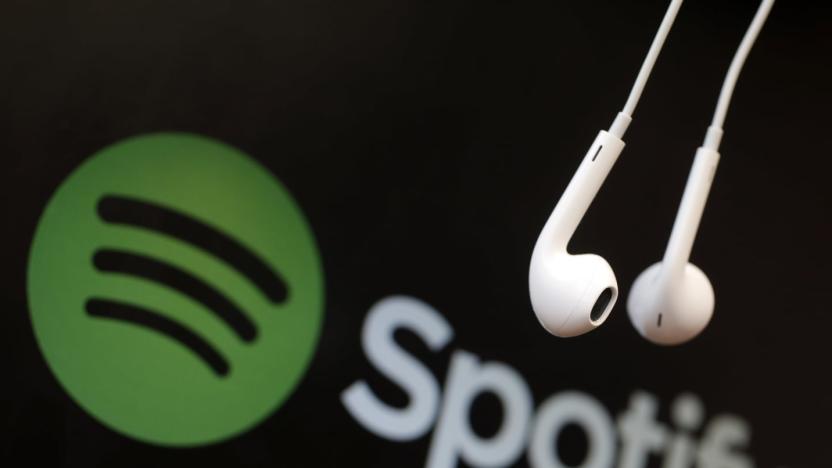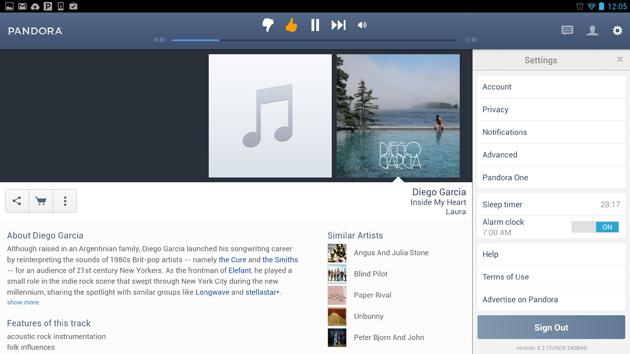ASCAP
Latest

Recording industry writes Trump on the eve of tech CEO visit
According to multiple reports, on Wednesday a number of high-profile tech execs will visit President-elect Donald Trump. The list includes Larry Page and Eric Schmidt, Tim Cook, Sheryl Sandberg, Jeff Bezos, Brian Krzanich and a number of others. Before that meeting goes down, however, the "music community" consisting of the Recording Industry Association of America (RIAA) and friends decided this was the time to speak up. In a letter (PDF) to Trump, the industry made its case for how valuable music is, and how that value (for their member companies) is being siphoned away by tech companies that don't do enough to make sure every note is paid for.

Pandora ends its war with two major music publishers
If there's one thing that Pandora likes, it's a fight, but even the firm that bought an FM radio station to stick it to the man has limits. The outfit has decided to make peace with two of its most formidable adversaries: music licensing agencies ASCAP and BMI. Pandora has revealed that it's signed a new, multi-year deal with both entities that'll see it pay what'll probably be a higher fee every time one of their songs is played. Naturally, the terms of the agreements are being kept secret, but USA Today thinks that it'll be above the 2.5 / 1.75 percent that BMI and ASCAP, respectively, currently earn.

Court rules that Pandora won't pay higher royalties to songwriters (update: ruling details)
Pandora has been fighting tooth and nail against potential songwriting royalty increases, and it appears that this tenacity is largely paying off. A court has ruled that the streaming radio service should pay the same 1.85 percent royalty rate that it has paid for years, resisting both Pandora's call for 1.7 percent (like traditional radio) and the American Society of Composers, Authors and Publishers' (ASCAP) demand for 3 percent. Details of the ruling are under a court seal, so the motivations behind the decision aren't yet clear. However, ASCAP is more than a little upset by its loss; it sees the verdict as proof that full-scale licensing reform is necessary to "reflect the realities" of modern music. Whether or not that's true, the Society may have inadvertently sabotaged its own case. It pointed to iTunes Radio's higher royalty rate as a model for fair compensation, but Apple is willing to make little to no profit from its music services -- ASCAP may have unintentionally suggested that its proposal wasn't realistic. Update: A week later, the details of the ruling are available. The judge determined that ASCAP was colluding with publishers to force Pandora to pay higher rates; it would ask publishers to leave the group so that they could negotiate more lucrative deals on their own, raising their royalty demands to give ASCAP more leverage at the rate court.

Pandora buys FM radio station to lower royalty rates for streaming music
Pandora has complained for years that royalties for internet-only radio stations are too steep. It may have found an end run around the problem, however: it just bought an FM radio station in South Dakota. The company's Chris Harrison argues that the deal will make ASCAP and music labels offer Pandora the same songwriting licenses that they do to rivals like iHeartRadio, which allegedly gets better terms through its traditional broadcasting roots. Opponents argue that Pandora is simply trying to dodge fair compensation through the buyout, although the streaming service claims to have been forced into more than one unfair rate hike with current licensing. Whatever the truth, Pandora is racing against the clock -- competition won't get any easier when built-in services like iTunes Radio are on the way.

ASCAP announces music license for web/app developers
Developers wanting to stream popular music in their mobile apps now have an inexpensive way to do so legally. The American Society of Composers, Authors and Publishers (ASCAP) launched the new ASCAP PLAY MUSIC License for Websites and Mobile Apps last month, allowing developers to pay a low annual fee of US$240 for access to the ASCAP catalog. That catalog of music is nothing to sneeze at; ASCAP currently counts over 8.5 million works of music in its library. According to ASCAP, owners of websites and developers of mobile apps can buy the license online. There's no reporting requirement, making it simple for devs and admins to legally use some amazing music in their products. The requirements are simple -- if your web or mobile app has fewer than 30,000 users visits per month, it has less than $2,000 a month in revenue and you can pay for the license with Visa or MasterCard, you're eligible.

Extended iTunes song previews delayed, licensing may be to blame
One of the things that was widely rumored to appear but ultimately absent from Apple's music event last week was an extension of song previews on the iTunes Store from their current 30 seconds to 60 or even 90 seconds. According to CNET, we can blame the Byzantine licensing arrangement of the music industry (surprise, surprise). Apple had a deal worked out with Broadcast Music, Inc. (BMI), all four major record companies, and a contract with American Society of Composers, Authors and Publishers (ASCAP) that never limited preview lengths in the first place. Apparently that still wasn't enough to increase preview lengths, because CNET says the National Music Publishers Association objected and basically said, "No, you have to make a deal with us, too." All of which just makes me wonder: how many different licensing associations does this cash cow industry need, anyway? The music industry giants gave up a lot of their power (and money) to Apple in the mid-2000s, and it seems they've learned their lesson. Unfortunately for us users, this obstructionism means we end up losing out on neat features. As CNET notes, the current mini-battle over song previews is likely just a warmup for the headliner bout: Apple's predicted music streaming service. Music industry execs already tried to get Apple to pay "performance fees" for its 30-second song samples; I can imagine Steve Jobs's response to that one was something like maniacal laughter followed by a hearty "No." If Apple does finally manage to get 90-second previews pushed through, it could be a good sign for its music streaming aspirations. [Via MacRumors]




